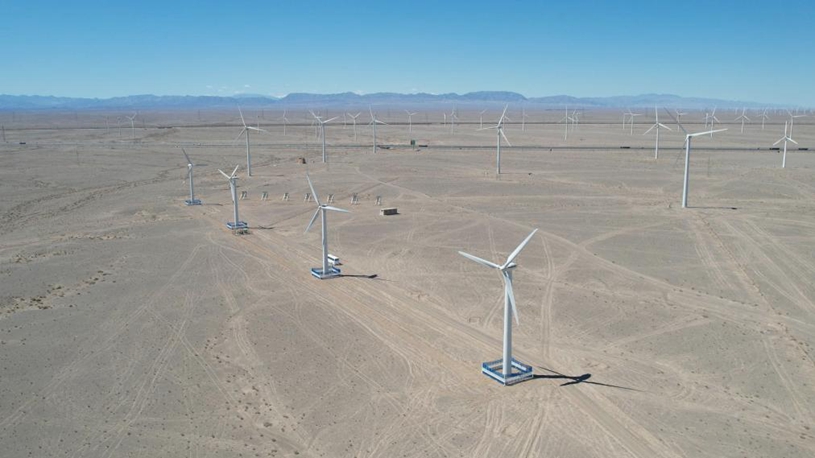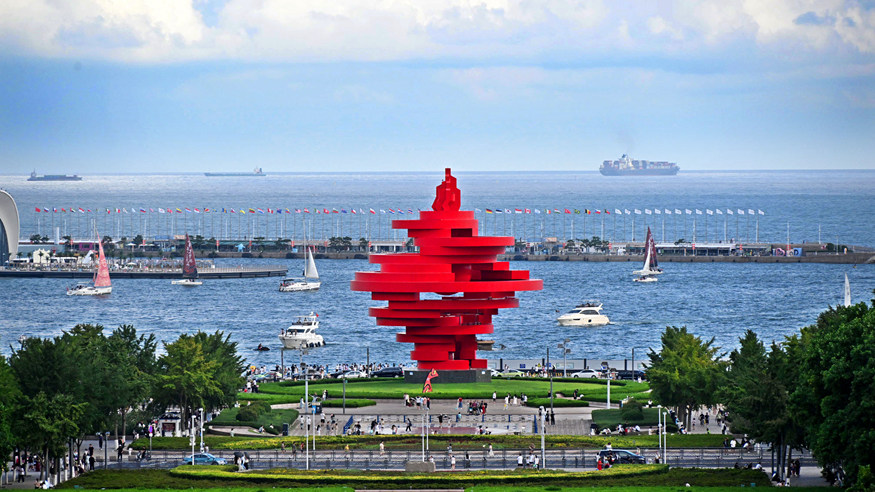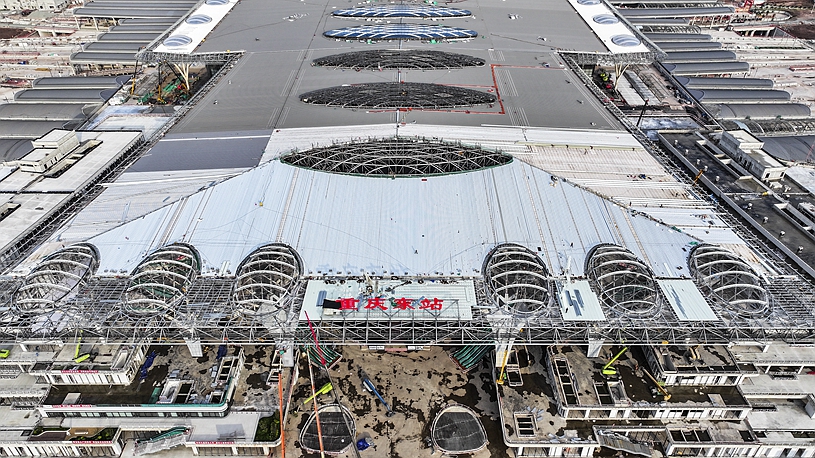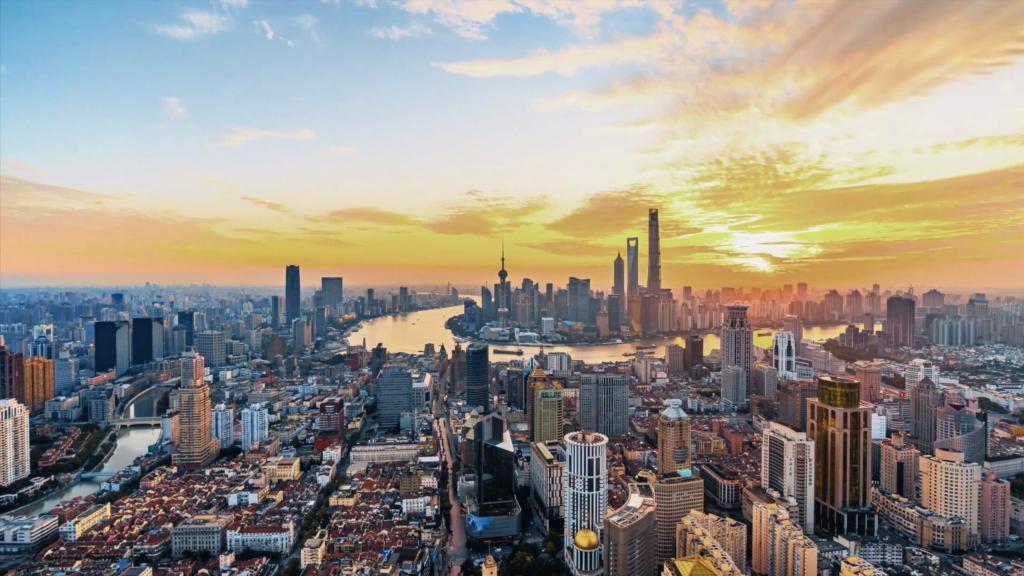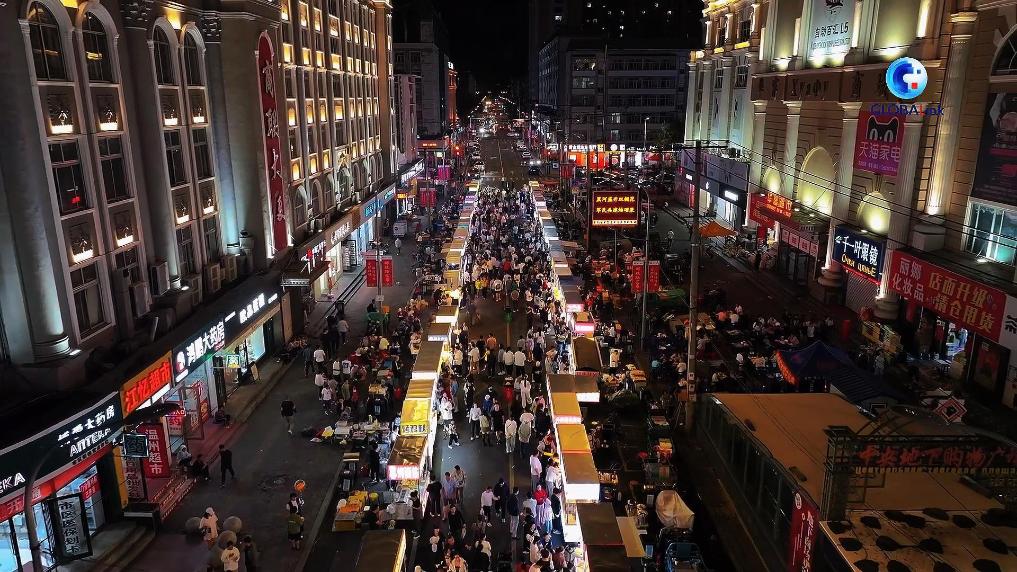* In 2023, the market size of China's freshly brewed coffee market reached roughly 162.35 billion yuan (about 22.76 billion U.S. dollars), indicating a significant growth from the previous year and the value was forecast to exceed 193 billion yuan (about 27 billion dollars) by 2024, said German statistics platform Statista.
* Fast delivery in China makes it easier for consumers to order coffee online. In major cities, it usually takes less than an hour for coffee to be brewed and then delivered.
* Between 2010 and 2022, coffee consumption per person in China rose fourfold, said the International Coffee Organization. More than half of Chinese coffee drinkers consume at least three cups a week, according to Statista.
by Xinhua writers Lyu Yanhao and Wang Zongnan
BEIJING, Aug. 21 (Xinhua) -- Here is some good news for coffee lovers in China: Chinese coffee giant Luckin Coffee recently opened its landmark 20,000th outlet, and German coffee brand Neumann Kaffee Gruppe (NKG), one of the world's largest coffee merchants, launched a subsidiary in Shanghai in August.
The World Coffee Portal reported that China surpassed the United States last year to become the country with the most coffee outlets in the world.
Traditionally a tea-drinking nation, China has now emerged as East Asia's fastest-growing market for coffee consumption, carving out a unique position in the global coffee landscape.
NEW TREND
Chinese coffee drinkers have become more discerning in their tastes. Instant coffee once dominated the Chinese market. Yet, statistics show a surge in the freshly ground coffee market.
In 2023, the market size of China's freshly brewed coffee market reached roughly 162.35 billion yuan (about 22.76 billion U.S. dollars), indicating a significant growth from the previous year and the value was forecast to exceed 193 billion yuan (about 27 billion dollars) by 2024, said German statistics platform Statista.
Chinese consumers are looking for high-quality coffee with special offerings. They consider "coffee origin" to be an important factor when purchasing freshly brewed coffee, and many white collar workers are willing to pay premium prices for premium coffee.
Coffee companies in China are making efforts to cater to local tastes. One innovation has been tea coffee and fruit coffee, a concoction that blends the two drinks.
"Just like Chinese tea, which can be made in different ways in other countries, a foreign product like coffee can also have a local taste," said Long Ye, founder of a coffee shop called Wuyinmen in southwest China's Chongqing Municipality.
Oolong Latte and Orange Juice Americano are among the popular choices. Last year, the "Sauce-flavored Latte" from Luckin quickly became a sensation on social media, with alcohol from China's premium liquor maker Kweichow Moutai. On the first day of its launch, it sold over 5.42 million cups and generated sales exceeding 100 million yuan (about 14 million dollars).
For major coffee companies in China, the competition on how to make the best coffee that caters to the needs of Chinese customers is very fierce between the leading brands.
"This expansion allows us to be closer to our customers, understand their needs better, and deliver tailored coffee solutions," said Emily Chua, chief operating officer of NKG Shanghai, in a statement.
GROWING DEMAND
Coffee became a widely served beverage in China after the arrival of foreign coffee brands, starting with Starbucks, the first major Western coffee chain entering the market in 1999, followed by Costa Coffee in 2006 and Tim Hortons in 2019.
More and more customers are developing a love for coffee and know a lot about coffee quality. "To me, coffee is a beverage that can make you physically and mentally comfortable. Thus, I hope my customers can also find a moment of peace while they are drinking my coffee," Long said.
In the past, it was primarily fashionable white-collar workers who frequented coffee shops in China, drawn by the trendy atmosphere and the allure of international coffee culture. However, this has changed in recent years.
The sight of ordinary Chinese carrying a cup of coffee has become increasingly common. Whether it is grabbing a coffee on the way to work, sipping while shopping, or enjoying a leisurely cup on the weekend, coffee has become an integral part of the daily routine for many people in China.
Fast delivery in China makes it easier for consumers to order coffee online. In major cities, it usually takes less than an hour for coffee to be brewed and then delivered.
More than 90 percent of 4,000 Chinese coffee shop consumers surveyed drink hot coffee weekly, while 64 percent consume iced coffee at least once a week, the World Coffee Portal said in a report last year.
China has become the fastest-growing market in East Asia, it said.
"When I traveled to China, I found that in recent years, China's beverage brands have developed rapidly, and the number of stores and beverage categories are increasing rapidly," a young man named Hong Seong-bin from Seoul told Xinhua, adding that he loves the coconut series in Chinese coffee shops.
MARKET POTENTIAL
South Korean coffee brands including "Caffe Bene" have opened branches in China and some are increasingly interested in the ever-growing Chinese market, Hong said.
"As the Chinese market is so huge and the demand is high, I believe that South Korean high-quality brand coffee shops can win the hearts of Chinese consumers," he said.
Chua shared this enthusiasm. "We are thrilled to establish NKG Shanghai as our first office in China," said Chua. "We are excited about the opportunities this vibrant market presents and are committed to contributing to the growth and development of the coffee industry in China."
Between 2010 and 2022, coffee consumption per person in China rose fourfold, said the International Coffee Organization. More than half of Chinese coffee drinkers consume at least three cups a week, according to Statista.
Shanghai leads the world in the number of cafes, with 9,553 coffee shops by the end of 2023, according to the China urban coffee development report 2024.
China has been an attractive potential market for international coffee chains, with Starbucks leading the way. However, its CEO, Laxman Narasimhan, was quoted by CNN as saying that the company is "still in our early days in China."
As more Chinese people are stepping into coffee shops to savor coffee from around the world, their coffee consumption and spending are expected to rise.
Tims China, the exclusive operator of Tim Hortons coffee shops in China, celebrated its fifth anniversary this February, marking a milestone with over 900 stores across more than 60 cities in China. Yongchen Lu, CEO of Tims China, is confident that "it will continue to integrate deeply into China's budding coffee-loving market."
For a traditional tea-loving country, coffee could become China's new cup of tea. The growing popularity of coffee culture across China and its vast market potential for the beans present a great opportunity that foreign brands are eager to seize.
(Xinhua correspondents Chen Qingbing, Li Xiaoting, and Li Sibo also contribute to the story. Video reporters: Zhou Yonghui, Xiong Xuanang, Wang Junfeng, Chen Jie, Shang Kunlun, Sun Zhenghao, Yan Xinhe; Video editors: Hong Liang, Zhang Yuhong, Wang Han.)■

